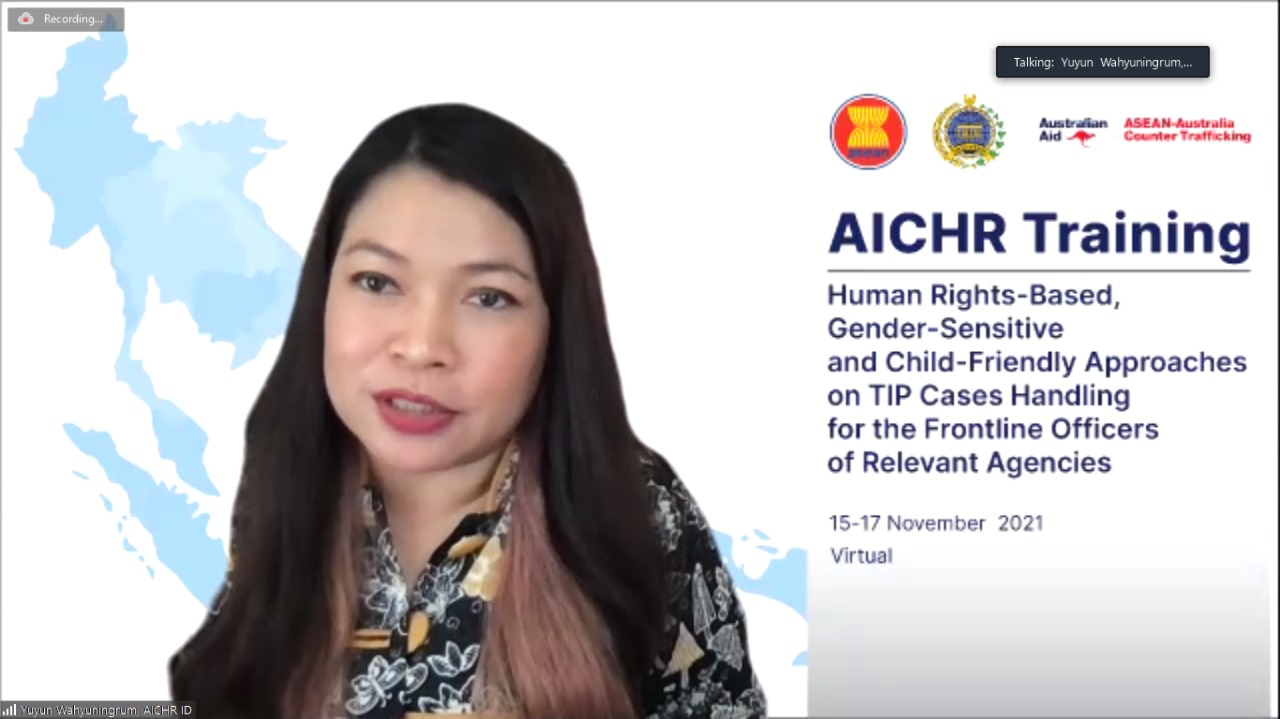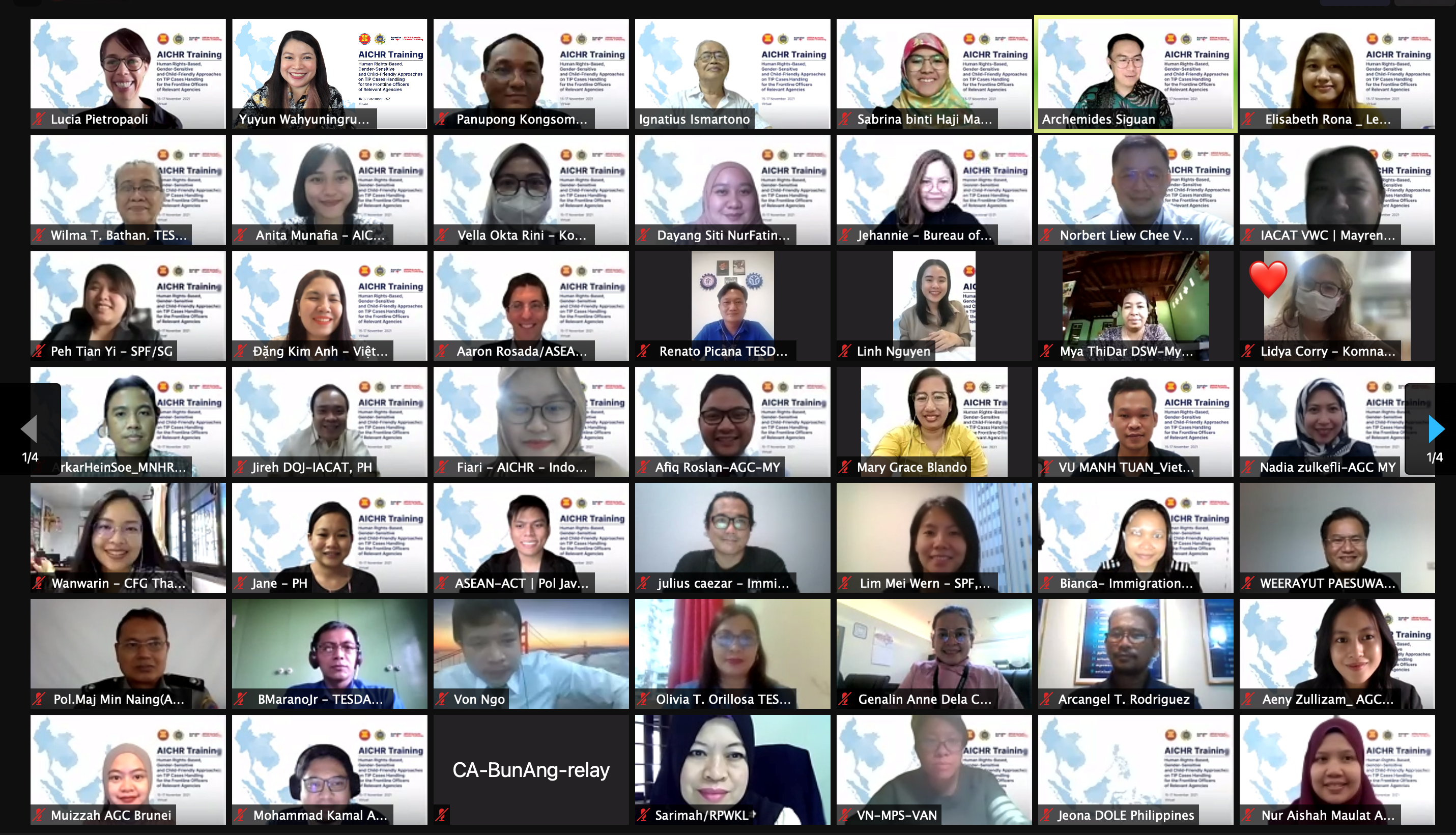
AICHR training for frontline officers emphasises on human rights, child-friendly, gender-sensitive approaches in addressing trafficking in persons

JAKARTA, 20 November 2021 – The ASEAN Intergovernmental Commission on Human Rights (AICHR) organised its Training on Human Rights, Gender-Sensitive, and Child-Friendly Approaches on TIP Cases Handling for the Frontline Officers of Relevant Agencies, on 15-17 November, via video-conference.
In her opening remarks, H.E. Wahyuningrum, Representative of Indonesia to the AICHR, explained that the training was designed based on the premise that well-trained frontline officers are an indispensable part of the anti-trafficking responses and have a pivotal role in countering trafficking in person, and promoting human rights and gender perspectives.
She further emphasised that human rights violations are both a cause and consequence of trafficking in persons and require human rights, child-friendly and gender perspective approaches.
The Voluntary Lead Shepherd on Trafficking in Persons of the ASEAN Senior Official Meeting on Transnational Crime, Undersecretary H.E. Bernardo C. Florece Jr. highlighted the need to have a gender-sensitive approach, victim-centred and trauma-informed care in protecting and assisting victims of trafficking.
Acting Counsellor of the Australian Mission to ASEAN, Danielle Sever, recognised the critical role frontline responders play, often as the first to identify victims themselves, in combatting trafficking in persons and ensuring the human rights of victims are upheld.

The training was part of the implementation of the Bohol Work Plan on Trafficking in Person 2017-2020 and the AICHR Five-Year Work Plan 2021-2025.
The training comprised of modules related to contemporary forms and challenges in countering trafficking in persons, including to how cope with COVID-19; ASEAN mechanisms in addressing trafficking in persons; ensuring assistance and protection for trafficked persons; interviewing victims; investigating and prosecuting traffickers; assisting trafficked persons in the court proceeding and providing care for the cares.
At the training, participants shared their experiences and made recommendations, as follows:
- ASEAN to help develop a clear standard of operation for frontline responders to deal with the contemporary forms of trafficking in persons, particularly on forced labour, mixed migration and in fishery industries.
- ASEAN Member States (AMS) to enhance the use of Mutual Legal Assistance Treaty mechanism to help the process of investigation and prosecution of trafficking cases in the region.
- AMS to realise victim’s rights-centred and victim-friendly approach in assisting and protecting trafficked persons.
- AMS to consider not holding victims of trafficking in persons criminally or administratively liable, for unlawful acts committed by them, and take necessary protective operational measures of assistance and protection.
- AICHR to develop a human rights-based approach to regional referral system in ASEAN to better respond to trafficking in person cases.
- AICHR to hold a regional and inter-regional learning/sharing forum for the frontline officers in ASEAN to share experiences and responses to counter trafficking in persons.
AICHR acknowledged the support from the Indonesian Ministry of Foreign Affairs and the Australian Government through the ASEAN-Australia Counter Trafficking (ASEAN-ACT) programme towards the realisation of the training.
